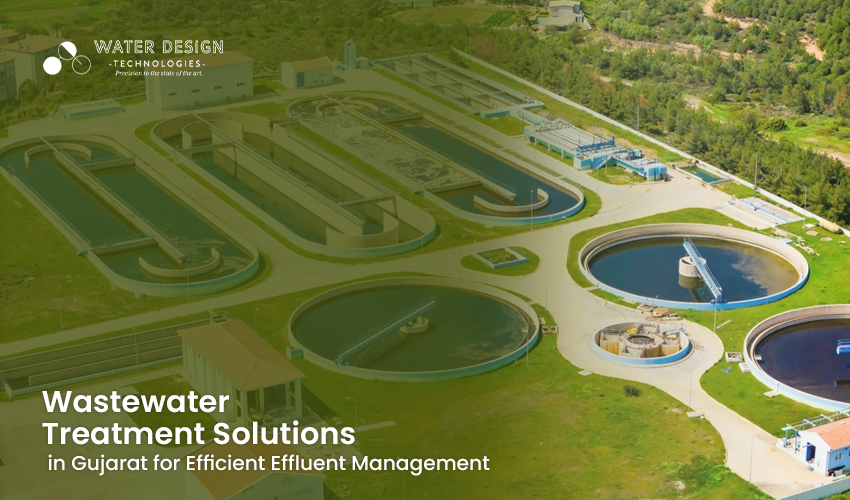Gujarat, one of India’s most industrialized states, faces significant challenges in managing wastewater and industrial effluents. With increasing environmental regulations and a growing emphasis on sustainability, efficient wastewater treatment has become more important than ever. From industries to municipalities, implementing effective solutions ensures cleaner water and a healthier environment.
In this guide, we will explore the top wastewater treatment plants in Gujarat, highlight the role of effluent treatment plants, and discuss the latest wastewater recycling processes and technologies that are driving innovation in India’s water treatment sector.
Wastewater Treatment Plants in Gujarat: A Growing Necessity
The rapid industrial expansion in Gujarat has led to a surge in wastewater generation. Wastewater treatment plants in Gujarat play a crucial role in ensuring that industrial effluents are treated before being released back into the environment. These plants help remove harmful pollutants, ensuring that treated water meets environmental safety standards.
- Key Features of Modern Wastewater Treatment Plants:
- Advanced filtration and chemical treatment processes.
- Energy-efficient operations that reduce the carbon footprint.
- Automated systems for continuous monitoring and maintenance.
Effluent Treatment Plants in Gujarat: Managing Industrial Waste
Effluent Treatment Plants (ETPs) are designed specifically for industries that produce significant volumes of wastewater. Gujarat’s textile, chemical, and pharmaceutical sectors rely heavily on ETPs to manage their effluent discharge. These plants focus on removing hazardous chemicals, heavy metals, and other contaminants from industrial wastewater, ensuring that it is safe for disposal or recycling.
Benefits of ETPs in Gujarat:
- Protects local water bodies from industrial pollution.
- Helps industries comply with strict environmental regulations.
- Reduces the risk of fines and penalties from pollution control boards.
Wastewater Recycle Process: Closing the Loop
Recycling wastewater is becoming increasingly popular as industries and municipalities recognize the value of conserving water. The wastewater recycle process involves treating wastewater so it can be reused for various purposes, such as irrigation, industrial processes, and even as potable water in some cases.
The wastewater recycle technologies used in Gujarat include:
- Membrane Filtration: This process uses semi-permeable membranes to filter out contaminants and recover clean water.
- Reverse Osmosis (RO): A highly efficient method that removes dissolved salts, minerals, and organic materials, making the water reusable.
- Biological Treatment: Utilizing microorganisms to break down organic matter, this process is ideal for treating biodegradable industrial waste.
Innovative Water Treatment Technologies in India
India, including Gujarat, is at the forefront of developing and adopting new water treatment technologies. With the growing emphasis on sustainable water management, cutting-edge solutions are being introduced to enhance water quality and availability.
Some of the most popular water treatment technologies in India include:
- Ultrafiltration (UF): A low-pressure filtration process that removes particles and microbes from water.
- Dissolved Air Flotation (DAF): This method is effective in removing oils, grease, and suspended solids from wastewater.
- Zero Liquid Discharge (ZLD): ZLD technology ensures that all wastewater is treated, and no liquid waste is discharged, making it a highly sustainable option for industries.
Why Choose Gujarat for Efficient Effluent Management?
Gujarat’s industrial landscape and environmental commitments make it a hub for advanced wastewater management solutions. From effluent treatment plants to innovative wastewater recycling processes, Gujarat leads the way in efficient water management practices that not only protect the environment but also promote sustainability.
By investing in top-tier wastewater treatment solutions, industries and municipalities can reduce their environmental impact, conserve valuable water resources, and ensure compliance with environmental regulations.
Conclusion
Efficient effluent management is key to sustainable industrial growth in Gujarat. With advanced wastewater treatment plants, cutting-edge effluent treatment plants, and the adoption of innovative wastewater recycle technologies, Gujarat is paving the way for a cleaner, greener future. Whether you are part of a large industrial enterprise or a small municipality, adopting these solutions is essential for responsible water management.
Explore the best water treatment technologies in India to stay ahead in sustainable practices and ensure that your wastewater is treated effectively.


